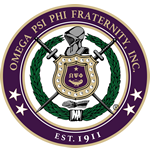Bro. Gregory N. Washington Stands Firm as George Mason Faces Trump-Era Scrutiny (ΚΛ ’86)
When Bro. Gregory N. Washington became the first Black president of George Mason University in 2020, he set out to cool tensions and widen the circle of belonging on campus. Four years later, those same commitments have put him at the center of a national fight. The Trump administration has accused George Mason of violating Title VI of the Civil Rights Act by favoring “underrepresented” candidates in hiring and promotions—and has singled out Washington personally, demanding a public apology for his diversity efforts. He has declined.
“It’s to protect my reputation and the reputation of the campus,” Washington said in an interview, standing by the principle that inclusion and equal opportunity can coexist with lawful hiring. The confrontation is no ordinary policy dispute; it places one university president face-to-face with the machinery of federal enforcement—and he has chosen to hold his ground.
A leader who won’t bend
Most presidents try to avoid direct, public clashes with Washington, D.C. Washington chose not to. He refused to issue a personal apology tied to diversity initiatives, a posture faculty advocates called rare and necessary. The campus chapter of the American Association of University Professors (AAUP) described the federal approach—pinning responsibility on a single president—as “not only unprecedented but also deeply troubling.”
The pressure has been sustained. Federal officials opened multiple probes this summer, often referencing Washington’s statements in support of a more representative faculty. The Education Department’s Office for Civil Rights (OCR) says its roughly six-week review concluded George Mason used race and other protected characteristics in employment decisions. As part of its proposed resolution, the department asked the university to revise policies, train decision-makers annually, and have Washington issue a personal apology within 10 days. Washington’s answer: no.
The broader campaign against higher ed—and Mason’s atypical profile
The clash tracks with a wider campaign that casts universities as elite, ideological institutions. George Mason complicates that narrative. It admits about 90% of applicants, draws many students from middle-class Northern Virginia, and is among the country’s more diverse campuses. While some faculty have criticized aspects of Washington’s handling of diversity programs and of pro-Palestinian protests, many students and professors have rallied behind him.
That support has shown up in visible ways. At a closely watched August board meeting—amid speculation that politics might cost Washington his job—trustees emerged from a closed session and awarded him a raise. Supporters framed the decision as a signal that public institutions and their leaders need not fold in the face of political pressure.
The legal counteroffensive
Washington is not fighting alone. He retained former Maryland attorney general Douglas F. Gansler, who calls the federal accusations “gross mischaracterizations.” Among Gansler’s central points: OCR has not identified a single George Mason job applicant harmed by unlawful discrimination; some cited “evidence” is simply Washington’s 2021 argument that, when multiple candidates meet the bar, search committees should weigh who best strengthens the institution—while explicitly stating this was “not code for establishing a quota system.” Gansler also warned that forcing a personal apology could create legal exposure for the university.
The university’s governing board has said it wants to negotiate with federal officials to resolve the claims. At the same time, the board’s own politics have drawn attention. Its chair, Charles Stimson, holds leadership roles at The Heritage Foundation, and the board hired Torridon Law—co-founded by former U.S. attorney general William Barr—to represent it. Faculty skepticism of the board’s posture led the AAUP chapter to vote no confidence earlier in the summer, even as trustees later approved Washington’s raise. Meanwhile, state-level dynamics have shifted the board’s composition; Virginia Senate Democrats blocked several gubernatorial appointees, leaving the panel without a quorum for official business.
Notes on policy shifts and campus infrastructure
Some contested policies and programs—such as diversity statements in hiring and components of the Access to Research and Inclusive Excellence (ARIE) initiative—had already been wound down or eliminated as guidance from Richmond and federal agencies evolved. The Office of Diversity, Equity and Inclusion was renamed the Office of Access, Compliance, and Community (OACC) after federal directives to end “race-based decision-making.” Federal investigators nevertheless cited OACC’s role in faculty-hire approvals and described what one administrator called an atmosphere of “surveillance” around diversity goals. George Mason’s board has publicly labeled the federal finding a “serious matter,” pledged cooperation with inquiries, and said it remains hopeful for a favorable resolution.
Why this moment matters
For university leaders across the country, the fight at Mason is a stress test: Can institutions protect core values like diversity, equity, and academic freedom while navigating an aggressive enforcement climate and volatile politics? Washington’s answer has been to pair compliance with evolving law and policy with a refusal to accept a personal confession of wrongdoing for initiatives he maintains were lawful and mission-driven.
The principles at stake reach beyond Mason’s hiring playbook. They touch on whether Title VI—crafted to dismantle discrimination and segregation—will be applied in ways that penalize good-faith efforts to broaden opportunity, and whether federal leverage over research and funding will chill campus governance and shared decision-making. As AAUP leaders at Mason put it, efforts to fight discrimination and strengthen inclusivity are not a violation of civil rights—they are a fulfillment of them.
The path ahead
George Mason’s board has announced its intent to negotiate with the Education Department. Washington’s counsel has challenged the speed and substance of OCR’s process and its interpretation of statements that did not trigger policy changes or quotas. On campus, supporters point to gains during Washington’s tenure—in enrollment, finances, and rankings—as evidence that broadening opportunity and strengthening institutional performance can go hand in hand.
However the talks proceed, Washington’s posture has already reframed expectations of presidential leadership under fire. By refusing to bow to a personalized demand—even as he steers Mason through policy revisions—he has become a touchstone for how to defend institutional integrity when federal power is trained on a single individual.
Further reading: At George Mason University, Trump Has Found an Unbending Adversary — by Stephanie Saul, The New York Times, Sept. 6, 2025.
Link: https://www.nytimes.com/2025/09/06/us/george-mason-university-gregory-washington-trump-attack.html

